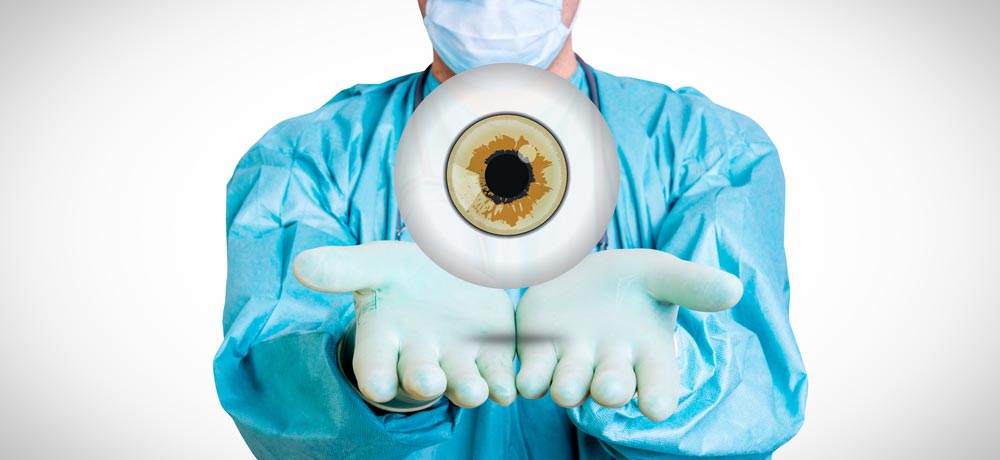Is Refractive Surgical Treatment Right for You? Aspects to Take Into Consideration for Better Eyecare
In the world of eye treatment, the decision to undertake refractive surgical treatment is a significant one that requires thoughtful consideration. From the details of one's ocular health and wellness to the intricacies of everyday behaviors and individual assumptions, each facet holds relevance in the wider landscape of refractive surgical treatment candidateship.
Eye Health Analysis
When thinking about refractive surgery, a comprehensive eye health and wellness analysis is important to assess the viability of the treatment for every person. eye doctors in andalusia. This examination entails a series of tests and exams performed by an eye treatment expert to identify the general wellness of the eyes, the existence of any kind of underlying problems, and the security of the refractive error
During the assessment, numerous elements are taken into consideration, such as the individual's clinical background, present eye prescription, corneal density, pupil dimension, and tear film top quality. These evaluations assist to determine any kind of contraindications to refractive surgical procedure, such as corneal problems, cataracts, or neglected eye infections. Furthermore, the examination aids to handle patient expectations pertaining to the possible end results of the surgery based on their distinct eye characteristics.
Ultimately, the eye health assessment is crucial in ensuring the security and performance of refractive surgery, as it offers valuable understandings right into the person's eye health and wellness status and helps establish the most suitable treatment options for achieving ideal visual outcomes. (cardiologist andalusia)
Way Of Life Assessment
An extensive way of life assessment is important in determining the viability of refractive surgery for a person's visual adjustment demands. Way of living aspects such as occupation, hobbies, and everyday tasks play a critical function in the decision-making procedure relating to refractive surgical treatment. For instance, individuals with careers that include a high degree of exercise or exposure to ecological elements might have different aesthetic needs contrasted to those with sedentary desk jobs. Understanding exactly how an individual's way of life might affect their vision post-surgery is crucial for taking care of assumptions and guaranteeing ideal results.
In addition, way of living habits such as sports participation, outdoor tasks, or even skin care regimens can influence the recovery process and overall success of refractive surgical procedure. By conducting a comprehensive lifestyle assessment, eye treatment specialists can tailor their referrals and treatment strategies to satisfy the unique needs of each person, ultimately leading to enhanced aesthetic end results and satisfaction.
Assumption Alignment

Clients require to understand that while several people accomplish 20/20 vision or far better following refractive surgery, some may still call for glasses for specific activities like analysis or driving at night. Taking care of these assumptions assists avoid frustration and frustration post-surgery, leading to an extra positive total experience for the client.
Danger Analysis

Variables that may raise the danger of difficulties consist of age, certain clinical conditions like autoimmune conditions, unpredictable vision prescription, slim corneas, and impractical person expectations. In addition, choosing a seasoned and skilled doctor, following pre and post-operative care guidelines vigilantly, and disclosing any kind of pertinent case history can help alleviate risks.
To minimize the likelihood of complications, ophthalmologists conduct comprehensive pre-operative examinations to recognize any kind of contraindications to surgery. They also go over the prospective threats and advantages with people during the appointment procedure. By taking part in open communication and shared decision-making, both the person and the ophthalmologist can interact to establish if refractive surgical treatment is the best choice based on individual danger accounts and preferred outcomes.
Consultation Relevance
Considering the important role of educated decision-making in evaluating risks and possible difficulties in refractive surgical treatment, the examination process holds considerable importance in assisting people towards ideal results. Throughout the consultation, the ophthalmologist evaluates the client's eye wellness, refractive mistakes, and general viability for surgery. This preliminary assessment is vital in identifying one of the most ideal procedure for each and every person, taking right into account aspects such as corneal density, student dimension, and existing eye conditions.
Additionally, the consultation offers as a chance for clients to review their expectations, worries, and any kind of questions they might have pertaining to the surgery. Clear communication in between the individual and the specialist is necessary to guarantee practical expectations and a complete understanding of the prospective risks and benefits entailed.
In addition, the assessment allows the cosmetic surgeon to discuss the various medical choices readily available, their respective results, and the post-operative treatment required. This thorough conversation encourages patients to make well-informed choices about their eye treatment, leading to much better contentment and end results post-surgery.
Verdict
Finally, individuals taking this website into consideration refractive surgical procedure ought to undertake an extensive eye wellness assessment, assess their way of living behaviors, align their expectations with prospective end results, analyze the involved threats, and focus on appointments with eye treatment experts. These aspects play an important function in establishing the suitability of refractive surgical treatment for each person, ensuring ideal outcomes and satisfaction with the treatment.
Patients taking into consideration refractive surgical procedure commonly have high expectations concerning the end results, anticipating best vision without the demand for glasses or call lenses. While refractive surgical treatment can considerably enhance vision and lower dependence Discover More on aesthetic help, it is crucial for clients to comprehend that results might vary based on individual factors such as the level of refractive error, corneal thickness, and overall eye health.
By engaging in open interaction and shared decision-making, both the individual and the eye doctor can work together to establish if refractive surgical procedure is the right choice based on individual threat accounts and wanted outcomes.
Taking into consideration the important function of educated decision-making in examining risks and potential problems in refractive surgery, the consultation procedure holds considerable relevance in directing people in the direction of optimal end results. During the consultation, the eye doctor examines the client's eye wellness, refractive mistakes, and overall viability for surgery.